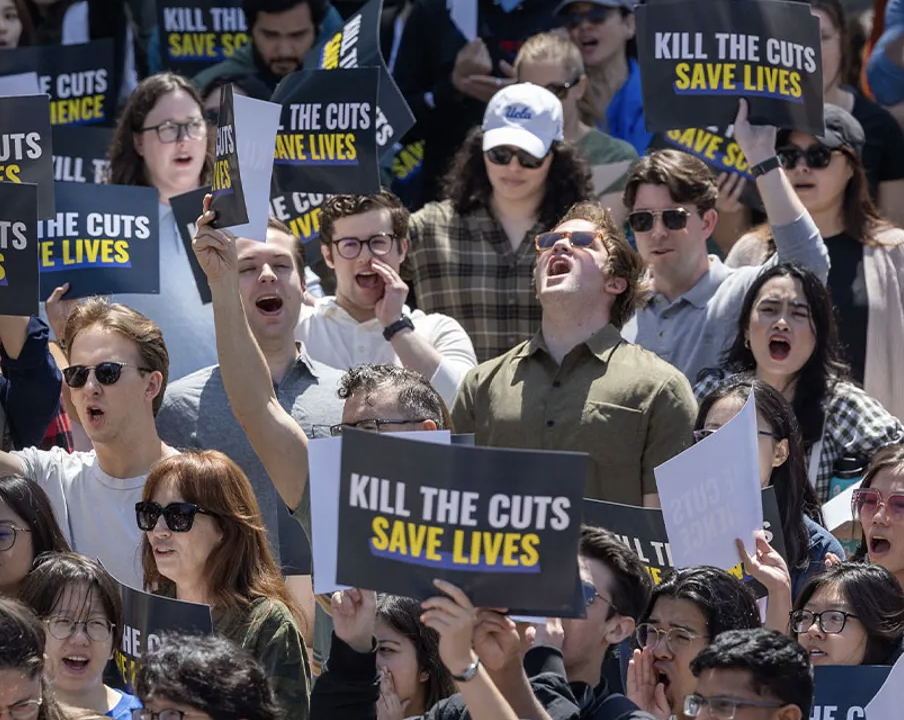UCLA is resisting pressure from the Trump administration to overhaul its policies in exchange for restoring frozen federal research dollars, with Chancellor Julio Frenk warning that there are “red lines we cannot cross.” The confrontation is escalating into a systemwide crisis, as UC President James B. Milliken cautioned that the attack on UCLA could spread to every campus and hospital in California’s premier public university system.
The standoff began when the administration froze about $584 million in UCLA’s research grants, accusing the university of civil rights violations tied to its handling of antisemitism on campus. Federal officials then floated a sweeping $1.2 billion settlement proposal that would not only fine UCLA but also remake its practices in admissions, faculty hiring, scholarships, gender identity policies, and curriculum. Frenk has said such concessions would strike at the core of academic freedom, stressing that the university cannot allow the federal government to dictate who it admits, hires, or teaches.
While a federal judge has ordered the temporary restoration of more than $500 million in grants, many projects remain suspended. To highlight what is at stake, researchers staged a “Science Fair for Suspended Research” on campus earlier this month. Scientists displayed posters describing experiments abruptly halted, from cancer immunotherapy and brain injury recovery to microbiome research. Some even brought preserved human brains to show the public what years of work could be lost without funding. The event underscored how a political fight in Washington is rippling into laboratories in Los Angeles, jeopardizing careers and slowing discoveries.
UC leaders warn the damage could soon extend far beyond Westwood. In a letter to the UC community, Milliken said that while the immediate focus is on UCLA, the administration is also pursuing investigations at Irvine, Berkeley, San Francisco, Davis, San Diego, and Santa Barbara, with allegations ranging from admissions practices to faculty hiring and civil rights complaints. He said the proposed $1.2 billion settlement is “minor in comparison to the threat that looms,” since the UC system relies on $17 billion annually in federal funds, including nearly $10 billion for Medicare and Medicaid at its hospitals. Losing a substantial share of that, he wrote, would devastate UC’s mission, stripping student services, reducing health care access, forcing layoffs, and driving world-class faculty to leave California.
Faculty associations have sued to force the release of the administration’s full settlement proposal, warning that negotiations behind closed doors keep the public from understanding how California’s economy, students, and patients could be affected. Campus unions are also organizing protests, pressing UC’s governing regents to reject any deal that undermines academic independence.
Governor Gavin Newsom has publicly urged UC to sue the Trump administration, calling the proposals “ransom” and “extortion.” Regents are weighing their options as negotiations continue. Meanwhile, Frenk has reiterated that UCLA will defend its principles even as researchers scramble to keep projects alive without federal dollars.

